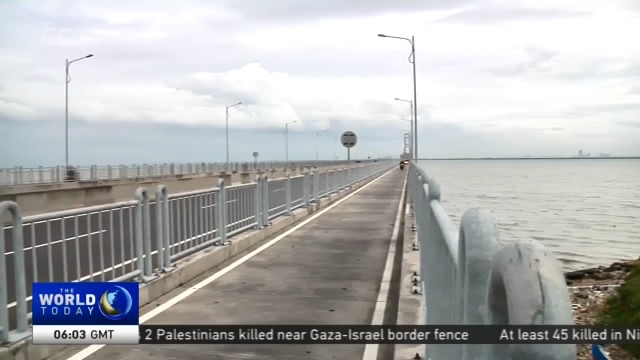
14:40, 07-May-2018
China-Indonesia Ties: Cooperation thrives under Belt and Road Initiative
02:14

China's relationship with Indonesia has improved significantly over the past few years. Cooperation has been closer, thanks to the Belt and Road Initiative Beijing proposed five years ago. Shang Jianglong explains.
Embarking on a new journey. Premier Li Keqiang travels to Jakarta in his first trip abroad after the renewal of his term earlier in the year.
Analysts say Beijing is putting more emphasis on its ties with the major South East Asian nation.
Back in 2013, Chinese President Xi Jinping proposed the 21st Century Maritime Silk Road plan in Jakarta to boost maritime connectivity. The plan is part of the massive Belt and Road Initiative.
The Beijing-proposed plan coincides with Indonesian President Joko Widodo's vision to turn his country into a maritime power.
When he attended the Bo'ao Forum for Asia in March 2015, Widodo was assured by Xi that China will be actively involved in his vision that features the construction of more ports and more efficient maritime transport. The two leaders met again one month later in Indonesia to mark the 60th anniversary of the historic Bandung Conference, pledging closer ties in a joint communique.
Trade is also growing fast. China has been Indonesia's largest trading partner for seven years in a row. Trade in 2017 stood at 63 billion US dollars, up 18 percent year-on-year.
The Jakarta-Bandung high speed railway project is another flagship undertaking. Chinese and Indonesian builders are working together to connect the two major cities. The train is designed to travel at 350 kilometers per hour, meaning a one-way trip would take only 40 minutes.
Indonesia has more to offer. The Asian Development Bank said in an April report that its growth in 2018 and 2019 could hit 5.3 percent, fueled by increasing investment and domestic consumption. The largest economy in Southeast Asia also has the world's fourth largest population, promising a big market.
Shang Jianglong, CGTN.

SITEMAP
Copyright © 2018 CGTN. Beijing ICP prepared NO.16065310-3
Copyright © 2018 CGTN. Beijing ICP prepared NO.16065310-3